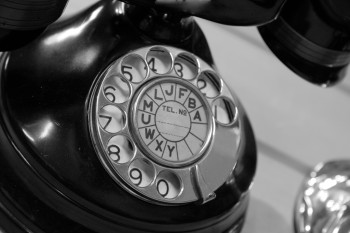
(Credit: Macinate via Flickr)
UK newspaper The Brighton Argus accidentally published an 18-year-old’s phone number but didn’t think it was an invasion of privacy.
The Argus included Ben Hyland-Ward’s phone number in a photo caption by accident. The photo went with a Sept. 12 article, “Update: teenager arrested on suspicion of fraud following Bestival ticket upset,” published online on 12 September 2015.
Hyland-Ward had been “arrested after taking thousands of pounds from his friends in payment for festival tickets which he failed to provide” and questioned by police on another matter. According to a February article in the Argus, Hyland-Ward was charged with “nine counts of fraud by false representation.”
His phone number was in an “internal note” the Argus forgot to delete, the newspaper said, according to IPSO. Hyland-Ward “was particularly concerned given the nature of the article’s subject matter, and because he normally took great care over who he gave his phone number to.”
The Argus told IPSO it had already realized it made the mistake and removed the photo from its website, where it only was for “no more than a few hours.”
However, the Argus didn’t think it as an invasion of privacy. The newspaper confirmed that the caption had been published by mistake, and that it had been removed as soon as it became aware of the error, IPSO reported the Argus said.
“It said that, overall, the caption remained online for no more than a few hours,” IPSO explained. “The newspaper said it understood that the complainant normally carried out his business over the phone, and that a source had informed it that ‘hundreds’ of his customers would have had his phone number.”
Even though it was a mistake, IPSO said that a personal cell phone “generally constitutes private information” and since there wasn’t any “evidence” outside of the newspaper’s claim that Hyland-Ward shared his phone number “in the public domain, for example through its appearance in an advertisement or other commercial activity.”
IPSO ruled the newspaper did invade his privacy and that the best way to rectify the situation was for the Argus to publish the ruling against it online.
iMediaEthics has written to the Argus and contacted Hyland-Ward over Twitter and Facebook for comment.







Comments Terms and Conditions